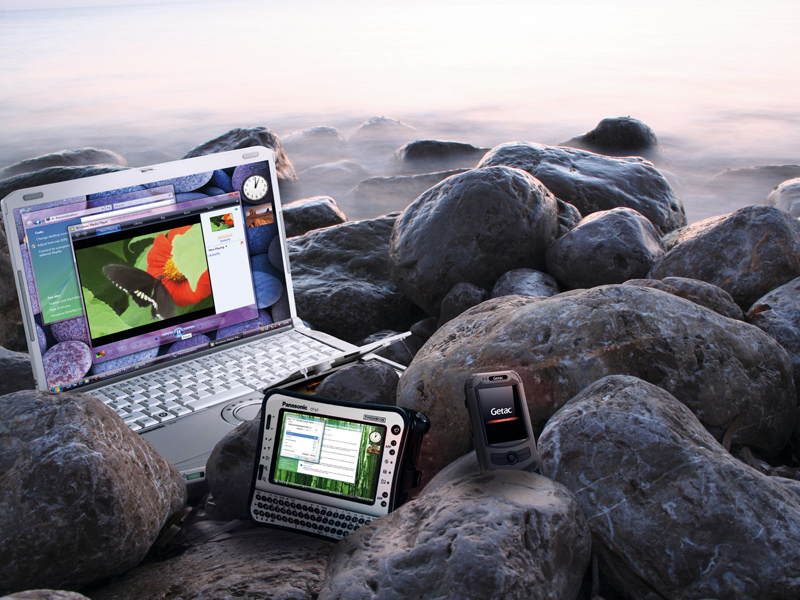
Sign up for breaking news, reviews, opinion, top tech deals, and more.
You are now subscribed
Your newsletter sign-up was successful
Gone are the days when electronic equipment was firmly rooted in the home or office. Our ever more mobile lifestyles demand ever more mobile gear, and the industry has not been slow in fulfilling that need.
But whereas mobile phones and personal audio devices generally have what it takes to survive this itinerant way of life, the same isn't always true of computers. At least, that's the case with ordinary portable PCs.
To take on the worst of what the world can throw, you need ruggedisation. Rugged computers were once heavy, expensive and underpowered. Things have changed, though, and there are now many models to choose from.
Perhaps you're a civil engineer after a laptop that can be trodden in the mud and slung in the back of a 4x4. On the other hand, maybe you're a business or home user who just wants peace of mind on the road. Either way, there's something for you.
What is 'rugged'? Like many terms, what's meant by 'rugged' can be fairly malleable. Most manufacturers tend to refer to various sub-categories to try and pin down exactly what the machines are capable of. These categories are pretty vague, however – Panasonic's include 'business rugged', 'semi-rugged' and 'fully rugged – so it's clear that we need more information to see what a rugged laptop can withstand.
For specialist applications, such as use in a fighter aircraft, in arctic conditions or in a tropical rain forest, you should think about the system's immunity to vibrations, extremes of temperature and humidity. In the main, though, users of rugged PCs want them to survive two common mishaps – being dropped and being soaked.
Immunity from the shock of a drop is easy to understand: most manufacturers quote a simple drop test figure, which is the height from which it can survive a tumble. You might want to enquire whether that drop is on to concrete or carpet, but it's still a useful benchmark.
Sign up for breaking news, reviews, opinion, top tech deals, and more.
The degree of waterproofing is complicated by the fact that it's normally specified by an 'IP' rating, a figure which is unfamiliar to most PC users. Thankfully, it's not complicated. The rating takes the form of two digits (IP54, for example). You can ignore the first. The second digit ranges from 0 (no protection) to 7, which means it will survive being immersed to a depth of a metre.
Between these extremes, 4 is common for reasonably rugged computers. It means that the PC is protected against sprays of water from any direction, or four inches of rainfall per hour – something rarely seen in the UK.
The whole reason for investing in a rugged PC is that you'll be using it away from the safety of the home or office. This means that there are a few other aspects you should also consider. First, make sure that the battery life is adequate: happily, rugged models usually outperform their non-rugged counterparts in this respect.
Second, for outdoor use, consider a special sunlight-readable screen – ordinary screens can be virtually illegible under high levels of illumination.
Finally, think about the size and weight – is this something you'd be happy carrying around all day? An unusually long battery life, sunlight readable screens and manageable dimensions all tend to be selling points of rugged computers.